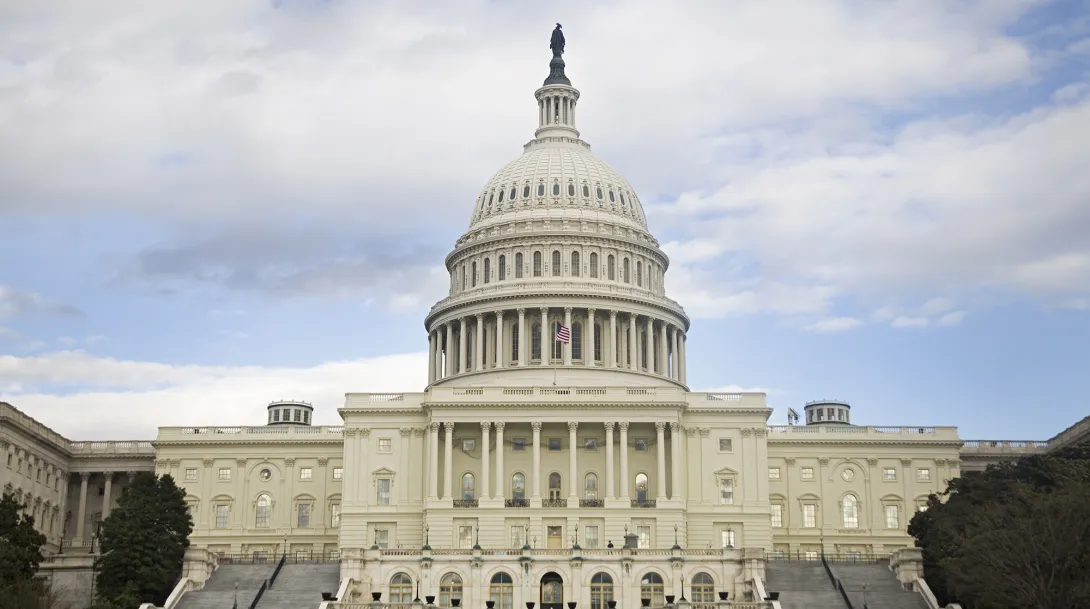
Photo: Michael Duva/Getty Images
The House early Thursday morning passed President Trump's reconciliation bill in a 215-214 vote, sending it to the Senate where some Republicans are reportedly balking at its adding $3.8 trillion to the federal deficit.
The bill aims to offset some of this debt and to pay for the president's proposed tax cuts by slashing programs and services. An estimated $715 billion is proposed to be taken from Medicaid over a decade, mainly through proposed work requirements that would kick-in at the end of 2026.
Medicaid cuts would be expected to increase uncompensated care for hospitals as 7.6 million people become uninsured, according to estimates from the nonpartisan Congressional Budget Office.
Between 9.7 million and 14.4 million people in the Medicaid expansion population would be at risk of losing Medicaid due to the work requirement, according to the Center on Budget and Policy Priorities.
Another estimated 13.7 million people who have insurance through the Affordable Care Act would also lose their coverage due to premium tax credits not being extended, the CBO said.
WHY THIS MATTERS, WHAT THE BILL DOES:
Major cuts in federal Medicaid funding would increase uncompensated care and curtail a key revenue source for hospitals, according to Moody's Ratings, which released a report last month on the bill's implications for healthcare.
Medicaid accounted for a median 15% of not-for-profit health systems' gross revenue in fiscal 2024, according to Moody's. The figure is significantly higher for children's hospitals (54%), rural hospitals and city- and county-owned hospitals, the report said.
Health Insurers would also face lower margins and earnings if a major cut in federal Medicaid funding takes effect and leads to lower reimbursement rates for Medicaid managed care plans.
Molina Healthcare and Centene would be highly exposed to federal Medicaid funding cuts as their Medicaid managed care business accounts for nearly 80% and 60% of their total premiums, respectively, Moody's said.
Separately, insurers stand to lose customers who receive coverage through the health exchange marketplace starting next year if enhanced subsidies are not reauthorized. In December, the Congressional Budget Office estimated that the number of uninsured would increase by 2.2 million if the subsidies are not extended for 2026, Moody's said.
Changes to state provider taxes would create significant funding gaps in state budgets, forcing states to either raise taxes, cut essential services or cut healthcare coverage for low-income residents..
THE LARGER TREND, REACTION:
Anthony Wright, executive director of Families USA said, "The House Republicans rushed through their budget bill overnight, but that vote and this package will only get more toxic as Americans figure out how much harm it does to our health coverage, our healthcare, and our health costs. No one campaigned on the biggest reduction of health coverage in history, nor on massive Medicaid cuts, nor on cuts to the ACA or Medicare, nor on higher health premiums and co-payments – but that's what House Republicans voted for in this budget."
"There is nothing beautiful about this bill. It is a direct attack on low-income people, on people with disabilities, on immigrants, and on families doing their best to survive in an economy stacked against them," said Elizabeth G. Taylor, executive director of the National Health Law Program. "Lawmakers know exactly what this bill will do. It will kick people off Medicaid and make it harder to get and keep coverage. That is not fiscal responsibility. It is cruelty and indifference by design."
Ways and Means Committee Ranking Member Richard E. Neal, D-MA said, "House Republicans just voted to rip healthcare away from nearly 14 million Americans, cut $500 billion from Medicare, take jobs and manufacturing out of their own districts and hand billions to the ultra-wealthy. Cowering from the American people doesn't change what workers and families get in this bill: pennies and higher costs."
Email the writer: SMorse@himss.org